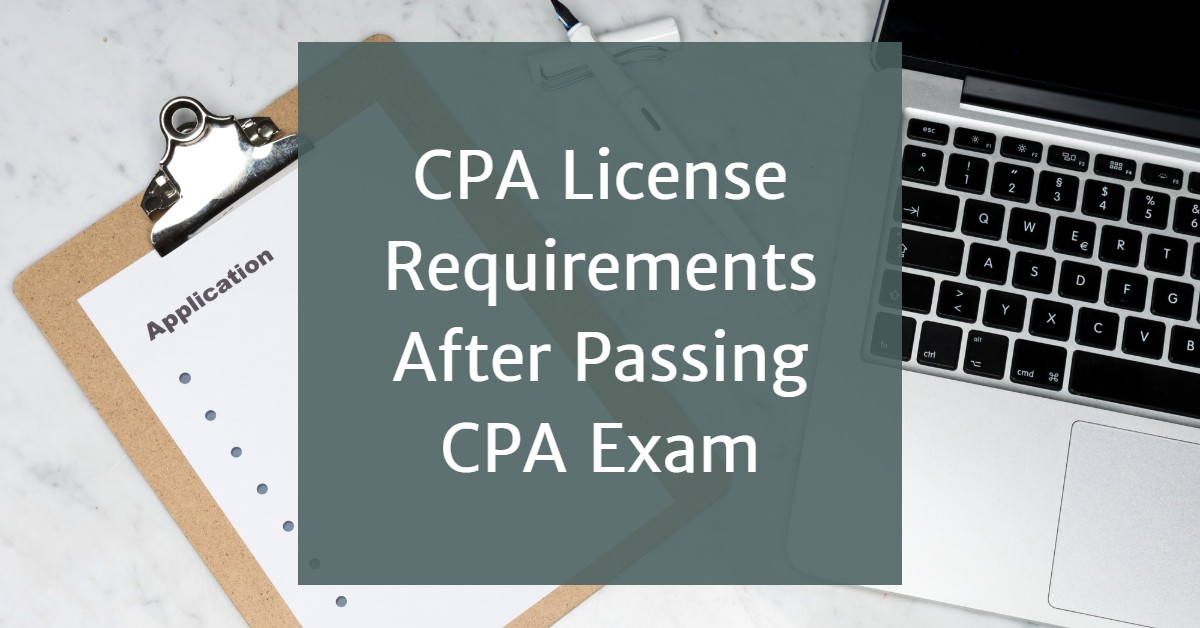SHARE:  Author: Jenna Elkins, Communications and Digital Media Specialist In 2021, 20,481 candidates successfully completed the Uniform Certified Public Accountant (CPA) Exam – passing the four sections: Auditing and Attestation (AUD), Business Environment and Concepts (BEC), Financial Accounting and Reporting (FAR), and Regulation (REG). After successfully passing all four sections, candidates immediately receive their CPA license, right?! Not necessarily! This is a common misconception, and one CPA Exam candidates need to be reminded about frequently before adding the prestigious three letters behind their names. CPA License Requirements Once a candidate completes the CPA Exam, the next step is to conquer the other requirements for obtaining a CPA license in the state in which candidates plan to ultimately practice as a CPA. Just like requirements for the CPA Exam, requirements for the CPA license, like education and work experience, vary from state to state. For example, many states require at least one year of public accounting work experience to qualify for a CPA license, while others accept different types of work experience in place of public accounting experience, such as teaching, self-employment, and part-time employment. To add to the complexity, some states have more specific requirements, such as a specified amount of auditing work experience. If a candidate resides and works in the United States, then he/she is required to be licensed in the state where he/she lives and practices. Most states now offer mobility privileges that allow CPAs to service clients across state borders, but those laws can take some delicate navigation as well. If a candidate does not reside or plan to physically work in the United States, there are a few states that will allow him/her to obtain a CPA license without requiring state residency and U.S. citizenship. For more information about the CPA license requirements for each state, use NASBA’s Accountancy Licensing Library to help determine the best course of action. Continuing Professional Education Finally, once a CPA license is obtained, it must be maintained. Many state boards require that CPAs maintain and improve their skills through continuing professional education (CPE) courses and other opportunities for professional development. For more information on state requirements, visit NASBA’s National Registry. |
